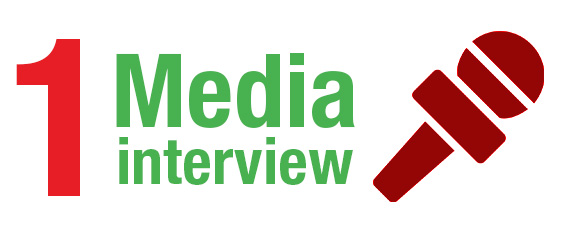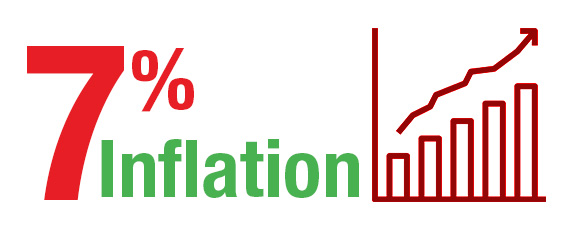
• Inspector General of Police (IGP), Punjab, Mohammad Tahir
• Islamabad Inspector-General of Police (IGP) Jan Muhammad
• Pakpattan District Police Officer (DPO) Rizwan Gondal
• Atif Mian, an economist, was asked to step down from the Economic Advisory Council (EAC)

• Nasir Khan Durrani resigned as chairman of the Commission on Police Reforms and Implementation in Punjab.
• Babar Awan resigned as adviser to the prime minister on parliamentary affairs
• Najam Sethi steps down as chairman of Pakistan Cricket Board (PCB)
• Sahibzada Amir Jahangir, appointed by the Prime Minister as his special assistant on foreign investment, refused to take charge
• Dr. Imran Rasul and Asim Ijaz Khawaja resign from the Economic Advisory Council (EAC) after Atif Mian’s removal
• Mir Ghazanfar Ali Khan, the governor of Gilgit-Baltistan, submits his resignation to the president

Prime Minister Imran Khan sent out a total of 50 tweets from his personal account (as of Nov. 24)

• Two-day visit to Saudia Arabia and UAE on September 18.
• Imran Khan attends the investment conference in Riyadh, Saudi Arabia, on September 23 and 24.
• Five-day visit to China from November 1 to 5
• One-day trip to UAE on November 18.
• Two-day official trip to Malaysia from Nov.20 to Nov.21

• Pakistan Citizen Portal (October 28)
• Clean and Green Pakistan (October 13)
• Registration for Naya Pakistan Housing Program (October 10)
• Prime Minister's 100 Days Agenda Progress Tracker Website launched (October 5)
• Ten billion Tree drive (September 2)
• The Supreme Court of Pakistan and Prime Minister of Pakistan Diamer-Bhasha and Mohmand Dams Fund (September 11)
• Prime Minister Imran Khan laid the foundation stone for model shelter homes in Lahore for the homeless in the city (November 10)
• The federal cabinet chaired by the prime minister formed a task force to retrieve ill-gotten wealth stashed by Pakistanis in foreign countries (September 6)
• Under the PM’s directives, a Commission on Police Reforms and Implementation was launched in Punjab to ensure the police service of the province it not subject to political interferences (September 18)
• Formation of a Civil Law Reforms committee that is tasked to propose suggestions for the speedy and effective disposal of cases, amongst other things (September 12)
• Taskforce for Tourism established by the PM (September 29)
• Taskforce to propose a new local government system in Punjab and Khyber Pakhtunkhwa (September 11)

August 19: In his maiden speech, Prime Minister Imran Khan outlined his plan for the new Pakistan he aims to create in his five-year tenure, touching upon a wide range of issues, including poverty reduction and austerity measures
October 24: Khan announced that Saudi Arabia has offered Pakistan a financial package of $6 billion. In the same address, he also lashed out at the opposition and promised that no NRO [National Reconciliation Ordinance] will be offered to those being probed for corruption.
October 31: The prime minister warned agitators of strict action after the Supreme Court acquitted Asia Bibi, a poor Christian woman on death row.

While several bills have been drafted by the PTI government, it could only pass one legislation, the Financial Supplementary (Amendment) Bill 2018 on October 3. (according to the FAFEN findings)

• Presenting an emergency supplementary budget, Asad Umar, the finance minister, announced that non-filers will be allowed to purchase new cars and property. Umar said the decision was taken to facilitate overseas Pakistanis. However, a few weeks later the government rescinded the tax-benefit granted to non-filers.
• The government appointed Atif R. Mian, a Princeton University economist, to the PM-led Economic Advisory Council. But then removed him under pressure from the religious political parties. The decision was seen as an about-turn as the information minister had earlier defended the appointment.
• The prime minister pledged to grant citizenship to the Afghan and Bengali refugees born in Pakistan. Imran Khan later backtracked and told the parliament that no such decision had yet been taken.
• In a televised address, Prime Minister Imran Khan warned rioting leaders of the Tehreek-e-Labbaik (TLP) political party that the writ of the state will be imposed, if the protesters continue to block streets. However, three-days later, his ministers signed a peace agreement with the TLP.
• After much dithering, and weighing up other options, the new government began talks with the International Monetary Fund (IMF) for a bailout package. In 2014, while in the opposition Imran Khan had severely criticised the then-ruling party’s decision to seek assistance from the lending body. Analysts and political leaders saw this as yet another about-face by the leader.
• In its first cabinet meeting, the PTI government decided that the prime minister and federal ministers would not undertake any foreign tours in the first three months. However, in a 100 days, Imran Khan has visited five countries – with many state ministers in tow – and that too on special planes rather than commercial ones, as promised.
Zero U-Turns on Imran Khan’s statement about U-Turns, in which he defended his habit to rollback decisions taken earlier and called the trait a “hallmark of great leadership.”

The PM House has held five auctions to sell 102 luxury vehicles of the PM House. Of which only 64 have been sold so far, (Breakdown: 62 on Sep. 17, 1 on October 7, 3 on October 25, 1 on November 7)

Eight buffaloes being kept at the Prime Minister house went on sale and were quickly picked up by buyers.

Since assuming office, the prime minister has only sat down for one media interview with Al Arabiya English.

Pakistan’s annual inflation rate is recorded at 7 per cent in October, the highest in four years. The surge has been attributed to hike in gas prices and the currency devaluation.

In a series of tweets, Prime Minister Imran Khan “put the record straight” by listing down the economic and human losses Pakistan had suffered due to the US failures in Afghanistan. Khan took to Twitter after US President Donald J. Trump in an interview accused Pakistan of playing a double game. Thereafter, ensued a back and forth between the two world leaders, although neither tagged the other in his tweets.


